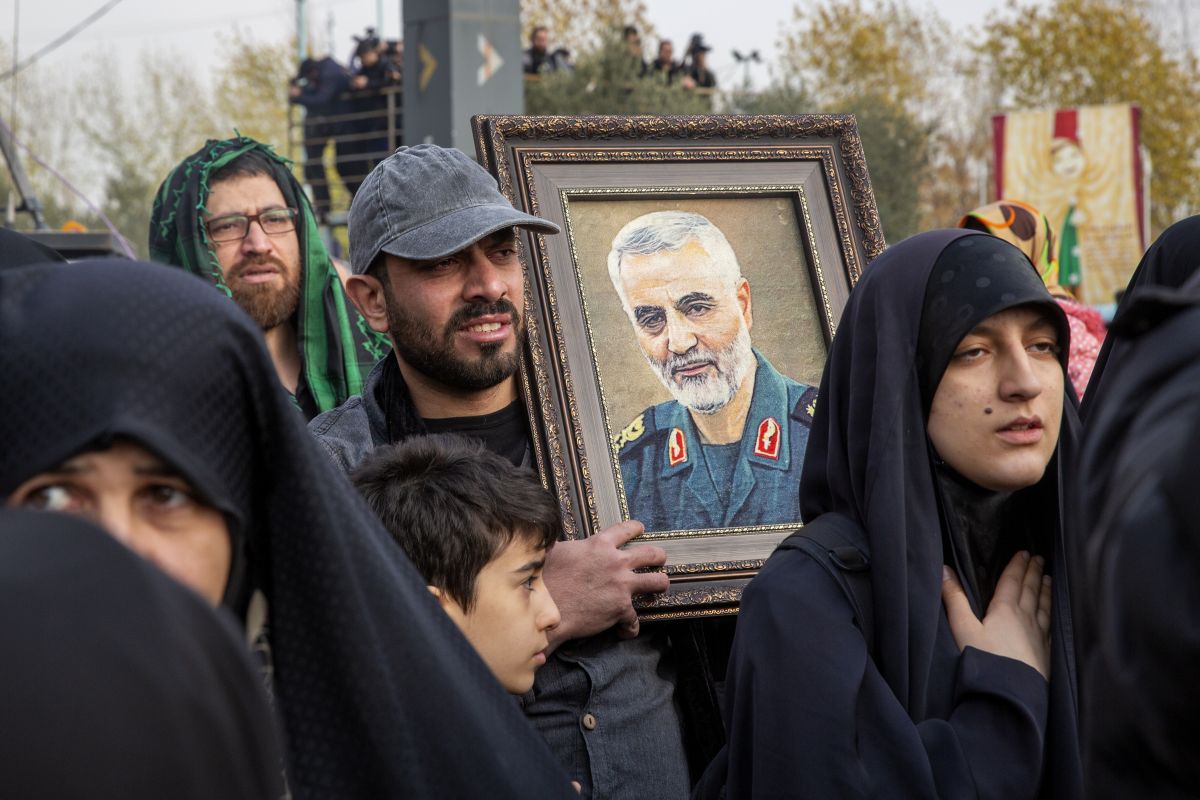Thousands of Iraqis marched and chanted “Death to America” on Saturday, mourned a top Iranian commander Qasem Soleimani and others killed in a US drone attack that sparked fears of a regional proxy war between Washington and Tehran.
The drone attack was the most dramatic escalation yet in spiralling tensions between Iran and the United States, which pledged to send thousands of more troops to the region.
Advertisement
Iraqi political leaders and clerics attended the mass ceremony to honour 62-year-old Soleimani and the other nine victims of the pre-dawn attack on Baghdad international airport.
US President Donald Trump said he had decided to “terminate” Iran’s military mastermind to prevent an “imminent” attack on US diplomats and troops.
Earlier on Friday, Trump had ordered the death of Soleimani, commander of the Quds Force of the Islamic Revolutionary Guard Corps considered a hero in the country, in order to “stop a war,” not start one.
Iran had termed the US action of “international terrorism” as “extremely dangerous and a foolish escalation”.
In the hours after the strike, the US reached out to Iran, with which it has had no direct diplomatic ties for decades.
Mass ceremonies started in Baghdad on Saturday for the dead, with Iraq’s caretaker premier Adel Abdel Mahdi and top pro-Iran figures in large crowds accompanying the coffins.
They were first brought to a revered Shiite shrine in northern Baghdad, where thousands of mourners chanted “Death to America!”
Dressed in black, they waved white Hashed flags and massive portraits of Iranian and Iraqi leaders, furiously calling for “revenge”.
The remains were then moved to the shrine city of Karbala and would ultimately end up in Najaf, where the Iraqis will be buried.
Earlier in the day, President Trump warned Tehran that 52 Iranian targets and will respond “very fast and very hard” to any reprisal from Tehran for the death of Iranian commander Qasem Soleimani, which the US leader ordered.
Maj Gen Soleimani led Iran’s Quds Force – the IRGC’s elite unit which handles clandestine operations abroad, since 1998.
In that position, Gen Soleimani played a key role bolstering Bashar al-Assad’s Iranian-supported government in the Syrian Civil War, and in the fight against the Islamic State (IS) group in Iraq.
He was a hugely significant figure in the Iranian regime. His Quds Force reported directly to Supreme Leader Ayatollah Ali Khamenei.











